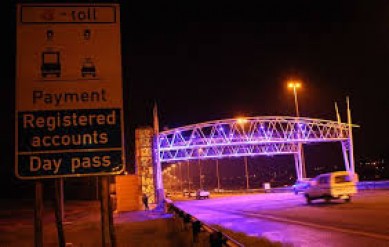E-tolling compared to apartheid as public inquiry concludes
The advisory panel considering the socioeconomic implications of the e-tolling system ended its public consultations last week - and the people of Gauteng are not happy, according to The Times.
Many sarcastically described the gantries as "beautiful blue lights" which would be better used as mountings for speed-trap cameras, weapons scanners, video cameras for soapies and stolen-car tracking devices.
Questions dominating the consultations were:
- Why did the government not properly consult the people?
- Who are the beneficiaries of the tolling system?
- What happened to the monthly charge limit?
- Do government officials pay?
- What is the fuel levy used for?
According to the Opposition to Urban Tolling Alliance's submission to the panel, only 28 responses from the 3.8 million motorists who use Gauteng's roads were received by the SA National Roads Agency during the 14-day "public comment" period in 2007.
Phinda Buthelezi compared the e-tolling system to apartheid laws.
"The Group Areas Act forced black people to live far away. Today the ANC wants to toll those same poor black people who have to travel to work."
He said tolls were similar to the old pass system.
"Certain groups of people had to live in certain areas and in order to go to other areas they needed to have a certain document. Today the ANC is saying that, for you to travel on roads, you must have certain amounts of money," he said.
Justice Makunyula regrets having registered for an e-tag.
"I feel that people who have ignored registering are better off."
The advisory panel was given suggestions about how the R20.6-billion borrowed to build the toll roads could be repaid.
The most common recommendation was that an additional fuel levy be imposed.
The Opposition to Urban Tolling Alliance said that adding 9c to the fuel levy would raise about R2-billion a year which could be used to repay the debt over 20 years.
The panel will present its findings to Gauteng Premier David Makhura in November.
















